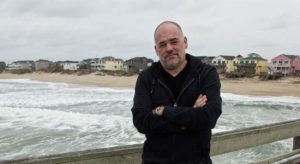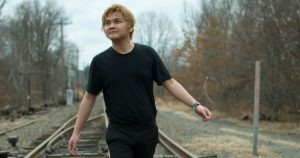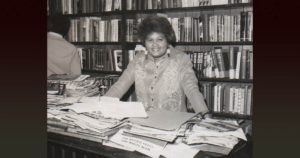
by John Bell
I was never a formal student at Goddard College, but from 1973 to 1975, I learned more there, in some ways, than I did in four years at a liberal arts college. I came there to work with Bread and Puppet Theater, which Goddard in its wisdom had made a theater-in-residence at Cate Farm.
I could see that Bread and Puppet deeply benefitted from Goddard’s approach to education, the arts, and community. Not only because students and faculty became deeply involved in creating new theater works of global importance, but because the Goddard’s open-minded, self-reliant, self-defined approaches to learning and doing were paralleled by Bread and Puppet’s own sense of theater as an always-evolving, constantly self-renewing series of experiments.
While at Cate Farm I benefited greatly from Goddard’s wide and deep embrace of learning. I sat in on Kirkpatrick Sale’s class on the history of Vermont, learned to sing classical choral music and Sacred Harp in a community chorus led by Marc Estrin, saw how Pablo Vela created magnificent inventions of cabaret performance and drama, and experienced a lively intellectual and cultural scene that included the premieres of many David Mamet plays, and performances by the Living Theater, Meredith Monk, and the Ridiculous Theater. I was astonished to learn that students and faculty could build, by themselves, the buildings where they would study, and experienced what it was like to be part of a community of sharing and mutual support which prized making music, art, and theater.
I learned that what Goddard was doing then in the 70s was connected to the visionary educational ideas of John Dewey, and that the strong countercultural atmosphere that defined that time was simply a contemporary version of the kind of radical thinking that Dewey had been proposing since the late 19th century. In other words, that this education-as-way-of-life I was experiencing was part of a strong American tradition.
Even after I moved farther north to the Northeast Kingdom, Goddard was a lodestone for innovative thinking and work. Cate Farm became part of the Institute for Social Ecology; and despite the serious challenges it faced in the late 90s, Goddard’s invention of low-residency adult education programs grew to have nation-wide importance, and Goddard kept creating new experimental programs, attracting dynamic, self-motivated students from all over.
The vision of a good life which I have followed ever since–combining work, family, friends, community, activism, and performance–is something, I realize, that had been sketched out as a living experiment at Goddard College; it is a vision that changed my life.
What did you discover about the world and yourself at Goddard College? Your learning journey continues. Consider making a donation to our Together For Goddard Campaign and help spread the word.







